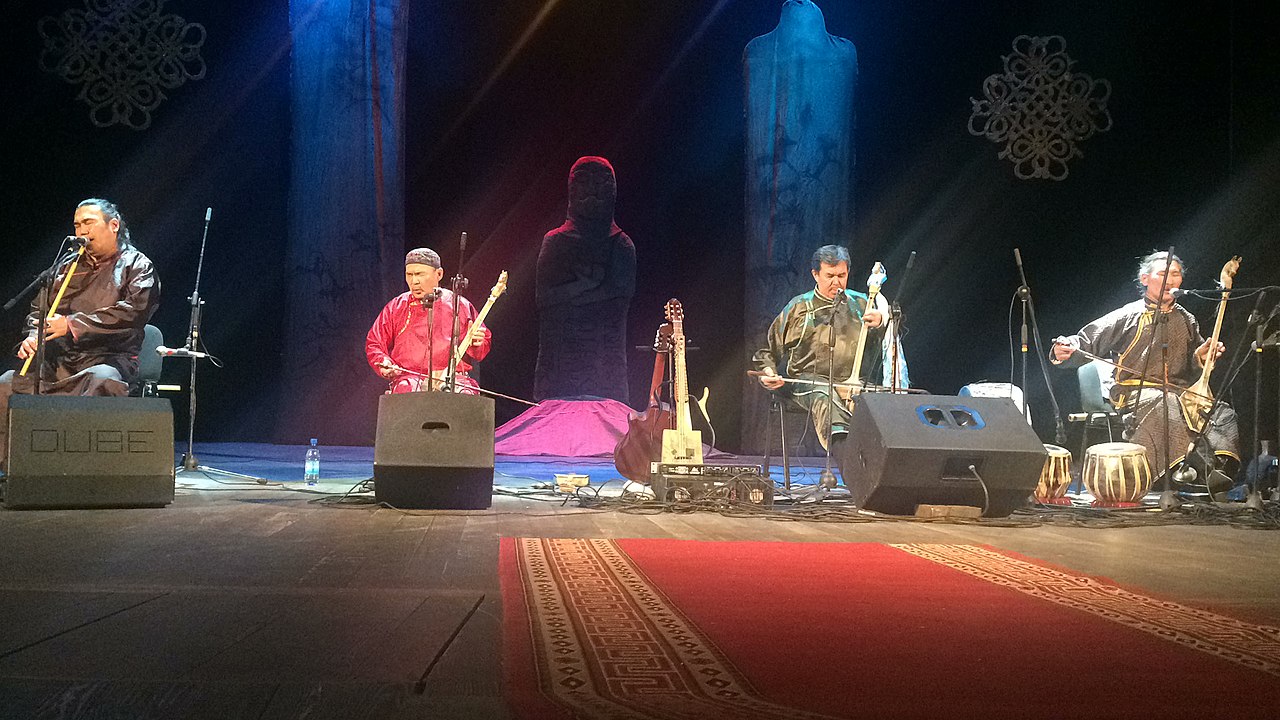The unique Huun-Huur-Tu who visit Donegal at the end of March
Chances are, you haven’t heard of Tuvan Throat Singing. Chances are, you also haven’t heard of Tuva, an independent republic between Mongolia and Siberia in the Russian Federation located south of Siberia.
Well brace yourself because the top exponents of this art, Huun-Huur-Tu, are heading to Donegal, more precisely Amharclann Ghaoth Dobhair at the end of next month. Ghaoth Dobhair was chosen as the location due to its parallel ethnic music tradition and mysterious landscape
The throat singing quartet performs using both a note and its overtones, thus producing two or three notes simultaneously. The overtone may sound like a flute, whistle or bird, but is solely a product of the human voice.
The ancient tradition of throat singing like the (not dissimilar-sounding) Aboriginal didgeridoo, developed among the nomadic herdsmen of Inner Asia, people who lived in yurts, rode horses, raised yaks, sheep and camels, and had a close spiritual relationship with nature.
The singing styles were supposedly modelled on the harmonic resonances herders would find naturally occurring around valleys or waterfalls, with some vocal styles configured to mimic the sounds of animals, wind, or water.

Having seen them live during their last visit to Dublin's Sugar Club, it's easy to see how the group proves that Tuvan music can take plenty of intelligent innovation.
Using traditional instruments and drawing subtly on 20th-century composers, Huun Huur Tu transforms ancient songs into complex acoustic compositions. They primarily use native Tuvan instruments such as the igil khomus (Tuvan jaw harp), doshpuluur, and dünggür (shaman drum).
Steeped in Tuvan folklore, the ensemble wears traditional garb and accompanies themselves on string and percussion instruments, playing galloping rhythms that evoke the vast south Siberian steppe.
The songs are about romantic love, love of place, and (not least) horses, with moods that range from lyrical and thoughtful to joyful, humorous and danceable.
Huun-Huur-Tu group member Radik Tyulyush says: “The band is extremely excited about the forthcoming tour of Ireland especially after our sell-out tours in 2018 and 2019 and we are particularly looking forward to performing for the Irish people who have always shown us a friendly reception”.
Throat singing gives voice to a unique way of life and a unique sound, and no doubt the feature that led to invitations to collaborate with everyone from Frank Zappa to Ry Cooder to The Chieftains so they will have experienced Irish traditional music and maybe even a bit of Sean-nós singing.
The unaccompanied traditional singing usually involves very long melodic phrases with highly ornamented and melismatic melodic lines, differing greatly from traditional folk singing.
I'm not saying it's our throat singing but you can help draw a few comparisons.
Well, be that right or wrong, there's only one way you are going to find out and that's by seeing Huun-Huur-Tu in all their glory in the Amharclann on March 24. Gaoth Dobhair group Tuath will be special guests on the night, performing a variety of music as Gaeilge.
In case you may not be in the county on that date they also play The Sugar Club, Dublin on March 22/23, the Roisin Dublin Galway on March 25 and Cork Live at St Luke's on March 26.
Subscribe or register today to discover more from DonegalLive.ie
Buy the e-paper of the Donegal Democrat, Donegal People's Press, Donegal Post and Inish Times here for instant access to Donegal's premier news titles.
Keep up with the latest news from Donegal with our daily newsletter featuring the most important stories of the day delivered to your inbox every evening at 5pm.